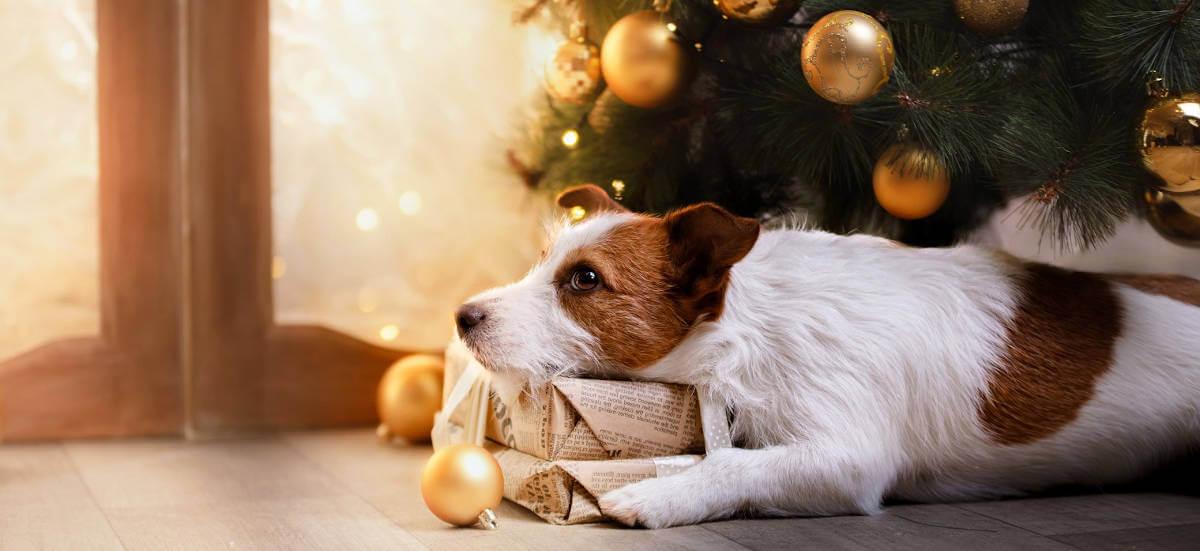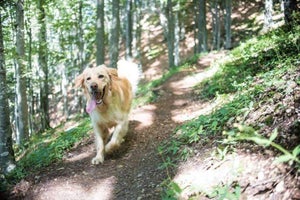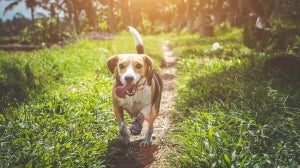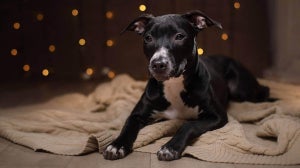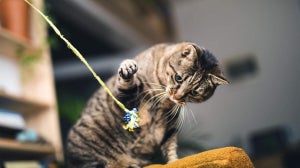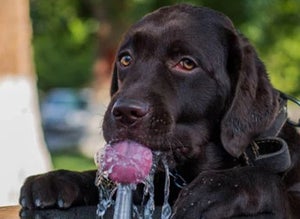
Which festive foods are unsafe for your canine pal?
Christmas is a wonderful time of year that brings families together, and that includes dogs, too. While they might not know the exact meaning of Christmas, your dog can still sense the heightened emotion of the period and will often rejoice in being included in the festivities.
In this Christmas spirit, it can be tempting to treat your dog with food from your dinner; however, this is often ill-advised.. Here, James Wellbeloved explores which festive foods are unsafe for your canine pal.
WHICH CHRISTMAS FOOD CAN’T YOU FEED TO A DOG?
A canine digestive system functions very differently to a human’s, and so there are foods that a human can eat that a dog can’t. Festive foods to watch out for include:
Christmas cake, Christmas pudding, fruit cake, and mince pies – these all contain grapes, raisins, and sultanas which are highly toxic to dogs, even in small quantities
Onions, garlic, shallots, leeks, and chives – very common in Christmas foods such as gravy or stuffing, these vegetables are part of the same family and can all be highly toxic to dogs
Turkey bones –especially if they have been cooked, bones can shatter easily in dogs’ mouths and the splinters can cause damage to their mouth, throat, or even their insides if swallowed
Alcohol – a tipple at Christmas is traditional for many families, but alcohol affects dogs much more strongly than humans and so you should not allow your dog to join in with this tradition
Chocolate – it is another Christmas staple, but chocolate contains a chemical called theobromine, which is highly toxic to dogs
Rich foods – you should avoid feeding high calorie foods, such as vegetables cooked in fat or cheese sauces.
If you suspect your dog may have ingested one of these foods, you should monitor them closely and contact a vet for further advice.
DON’T GIVE YOUR DOG TOO MUCH
Routine is key for dogs, even at Christmas. This means that, while it is inevitable some owners will treat their dog with a few little festive extras, you should stick to their ordinary feeding regime as closely as possible. If you would like to give them a Christmas treat, try to do so only in small amounts and to adjust the amount of normal feed you give them accordingly.
Further, if you do choose to treat your dog, keep the range of foods you give minimal. Pick one or two extras for your dog’s Christmas dinner, as a wider range can overload their digestive system.
WHICH CHRISTMAS FOODS ARE LESS DANGEROUS TO DOGS?
A canine digestive system functions differently to a human one. You should therefore try to only feed them food specially formulated for canine digestive systems and keep extras to a minimum. If you can’t resist giving your dog a little extra, ensure that you keep the food you treat your dog with plain, such as plain meat or vegetables. Although this might not seem exciting to you, it is still a treat for them and they will love it.
To keep with the festive spirit, feeding your dog some of the lean, white meat from your turkey might be appropriate. You could give them some plain sprouts alongside this, either steamed or boiled. Make sure you don’t give them too much though, so that you don’t to exceed their healthy calorie intake.
AVOID THE PUPPY DOG EYES
All owners will be familiar with the adorable eyes that dogs make to get you to feed them some of your dinner. Whether it’s while you’re eating or cleaning up, it can be hard to resist those pleading looks. This is how owners often end up feeding their dogs large amounts of table scraps. You should minimise the risk of this by keeping your dog’s treats separate from your meal and giving them to your dog in their normal food bowl. This will also help to prevent your dog expecting a treat every time you have a roast dinner.
So, there we have James Wellbeloved’s guide to Christmas food for dogs. Remember to show your canine pal some love this Christmas, whether that is through a food treat, a present, or some additional quality time together. If you think your dog has eaten something they shouldn’t or are worried they are exhibiting symptoms of illness, you should contact a vet for further advice.

